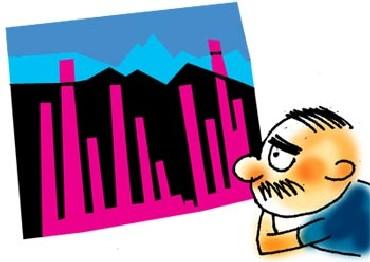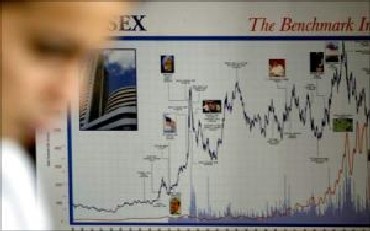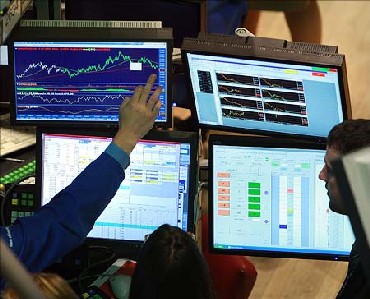
Fund-raising from primary market by listed and unlisted companies has hit an eight-year low in 2011. The calendar year has seen the lowest realisations from public offers since 2003, mainly on account of poor conditions in the secondary market.
The government's target of Rs 40,000-crore (Rs 400 billion) divestment and Rs 60,000-crore (Rs 600 billion) private sector issuances hit rough weather and the plan had to be postponed or put on hold.
"The primary market is dead, exchange space has not been conducive for raising risk-capital for India Inc," said Motilal Oswal, CMD of Motilal Oswal Financial Services.
There has been no initial public offer in the last three months, while only eight qualified institutional placements, or QIPs, were made through 2011.
There has been only one, very small, QIP issue (raising just Rs 40 crore) in the last five months.
. . .

The listless performance of the market is being attributed to poor secondary markets, which have shown one of their worst falls in the last eight years.
Except in 2008 -- when the Bombay Stock Exchange benchmark Sensex had fallen 52.45 per cent (61.40 per cent in terms of dollars) -- the slide of the Sensex (22.78 per cent) and BSE's dollar index, Dollex, (35.84 per cent), has been the steepest since 2003, so far this year.
When rupee depreciates sharply, foreign investors' dollar returns fall.
"One of the worst performances of the secondary markets in the last decade, coupled with the economic slowdown, has taken a heavy toll on primary markets -- both in terms of deals' issuance amount and price performance," said Sanjay Sharma, head (equity capital markets), Deutsche Equities India.
"When there is no demand for listed stocks, new share issues cannot happen," says Prime Database director Prithvi Haldea.
. . .

There is a problem also when listed companies want to raise capital through primary market instruments, such as QIPs, right issues and raising funds from overseas markets. Raising funds through overseas issues like foreign currency convertible bonds (FCCBs) and American depository receipts (ADRs)/global depository receipts (GDRs) has declined 71 per cent from the 2010 level, standing at 11 per cent of the 2009 level.
The weak secondary markets also affected private placement of shares through QIP issues, with only eight companies going for those and managing to mobilise Rs 3,391 crore (Rs 33.91 billion), compared with Rs 26,271 crore (Rs 262.71 billion) raised by 59 companies in 2010 calendar year.
Haldea said many issuers in the listed space were not diluting stake in hope of better valuations than what the market is offering at present.
Those companies that were vulnerable in view of the current macroeconomic scenario did not get good money, while those with brighter prospects were not ready to sell at current valuations, he added.
. . .

"The situation may remain tepid for a couple of quarters, unless the global situation stabilises and the India's state of policy decision-making, reduction in interest rates and inflation control improves," said Deutsche's Sanjay Sharma.
In this year of low capital market activity, Deutsche Bank has emerged as the top capital market revenue earner.
However Haldea is more categorical when it comes to prospects of Fund-raising in 2012.
He says: "There is no dearth of issuers, as the pipeline for primary issues is long. But 2012 could be another year of bad performance, because, local governance issues, a paralysed decision-making process and political uncertainty, in addition to macroeconomic and global uncertainties, will keep the overall market sentiment subdued."